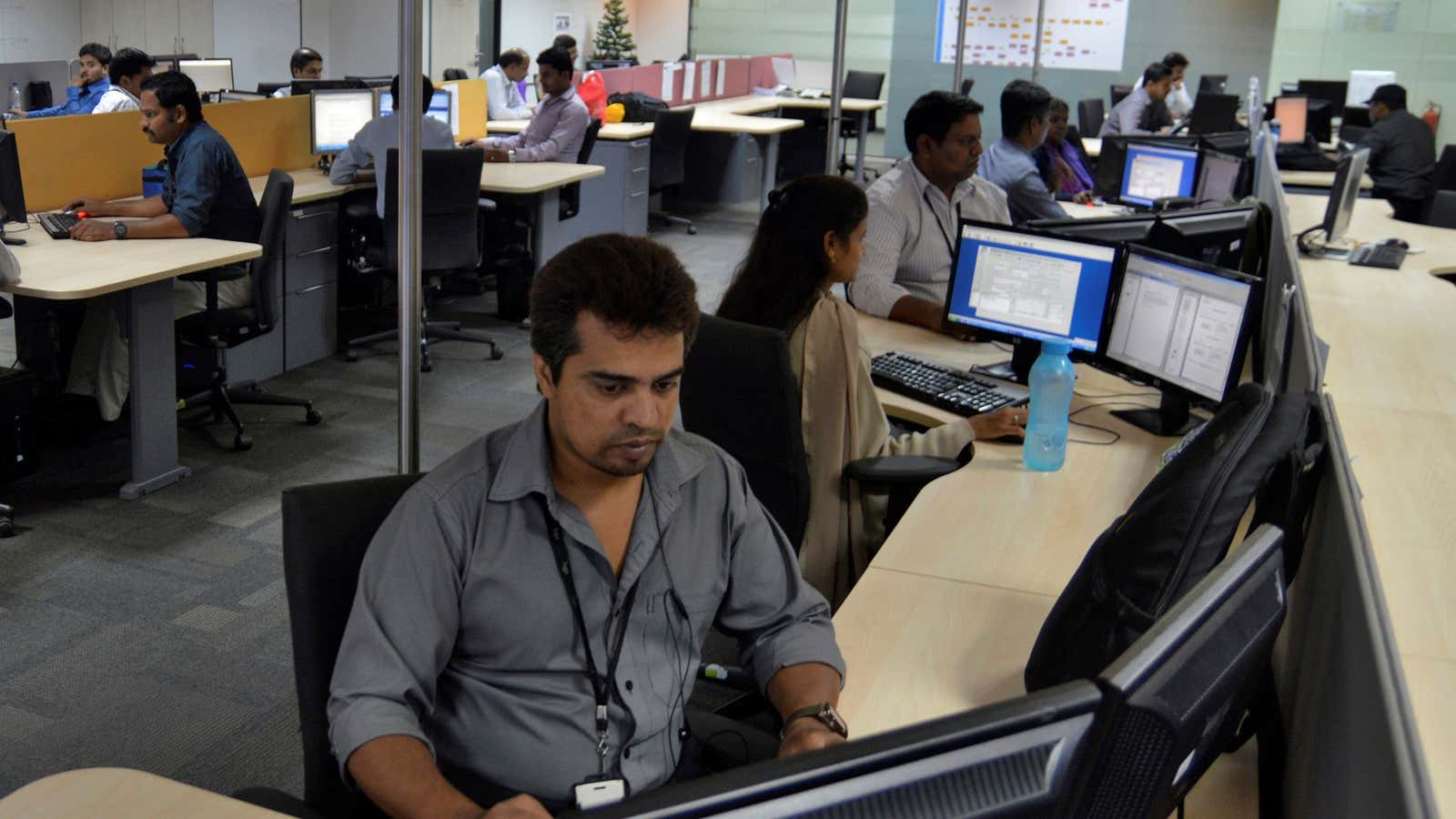Organisations in India, big and small, are increasingly seeing merit in investing in human resources-related technologies.
Nearly 70% of the firms in the country have automated half of their HR functions, including day-to-day operations such as recruitment, performance management, communications, and collaboration. Around 20% of firms are also planning to invest over Rs1 crore ($140,000) in HR technologies in the current financial year.
The findings are part of the State of HR Technology India 2019-20 report published by People Matters, a Gurugram-based multimedia organisation specialising in HR services. The company reached out to 250 multinational companies and small and medium businesses in the country between June and July to identify key trends in the sector.
Companies consider analytics, artificial intelligence, chatbots, and cognitive technologies as the top-three new-age technologies that can have greater impact on talent and workplace. On the other hand, blockchain technology, popularly used in crypto currencies, emerged as the least preferred technology, with 39% of respondents saying they are not well-versed with it.
Compared with three years ago, the share of companies that have automated various HR functions has increased. However, some key areas like strategic workforce and succession planning, continue to be people-driven.
Cost advantage
Saving on costs is the main reason why companies make HR technology investments. Other key drivers include increasing the effectiveness of HR functions, empowering leaders to manage workflows, and improving the execution/implementation of HR policies, says the report.
“The key objective of investing in HR technology is not limited to a standard scope for process effectiveness but organisations have realised that HR technology provides an opportunity to empower employees and to increase employee satisfaction and engagement,” said Ester Martinez, CEO and editor-in-chief, People Matters.
When choosing a particular HR technology for deployment, 74% of organisations look at its ability to integrate various functions in the HR system. Yet, only 37% of companies have an integrated system, or a common platform where managers and company leaders can monitor all HR functions.
Organisations have also identified metrics to measure their return on investments (RoI) in various HR technologies. The returns accrued from time saving top the list.
Decision makers and challenges
The key decisions related to investment in HR technology are led by chief human resource officers and CEOs within the organisation.
The growing say of CEO in matters of technology adoption in HR proves the top management now sees more merit and higher RoI in investing in people. In doing so, they recognise the need to create a future-ready workplace, claims the report.
Even as more organisations recognise the importance of investing in HR technologies, leaders and HR managers face a number of challenges in driving greater technology adoption within their firms, including budgetary constraints.
